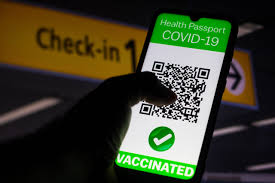Health Minister of Indonesia Budi Gunadi Sadikin advocated for a global digital health certificate during the G20 Summit in Bali, Indonesia.
The Business 20 (B20) is an event that is part of the G20 Summit: it is meant to express common views from the international business community.
The two-day Business 20 (B20) Summit 2022 in Bali, Indonesia, gathered global business leaders to offer policy recommendations to the G20 Summit to solve important business concerns.
Speaking to the crowd, Sadikin said, “Let’s have a digital health certificate acknowledged by WHO. If you have been vaccinated or tested properly, then you can move around. So for the next pandemic, instead of stopping the movement of the people one hundred percent, which [collapse] the economy globally, you can still provide some movement of the people.”
Sadikin went on to say that an agreement to have this digital certificate using WHO standards had been reached between the G20 countries and Indonesia.
“Indonesia has achieved… G20 countries have agreed to have this digital certificate using WHO standards, and we will suck it into the next World Assembly in Geneva as the revision to international health regulations. So hopefully, for the next pandemic, we can still see some movement of the people, some movement of the goods, and some movement of the economy.”
Watch the video below:
If this will pass, those who choose not to get vaccinated will be forced to give up their basic human rights.
It can be recalled that the Bill & Melinda Gates Foundation donated $1.27 billion to “advance progress toward the global goals” during United Nations General Assembly week this year, with $200 million going toward the development of an invasive global digital ID system. (Klaus Schwab and Bill Gates attended the G20 Summit.)
HIMSS (Healthcare Information and Management Systems Society), a member-based society committed to reforming the global health ecosystem, stated that “there are several important policies and ethical considerations for effective implementation.”
With multiple U.S. and global entities seeking to create their own version of a digital health passport, there is an increased risk of creating numerous disparate systems that are not interconnected and thus have no universal applicability. Incompatible standards along with solutions that are not designed for interoperability will likely lead these efforts to create a fragmented system that undermines both the adoption and the utility of digital health passports.
These include equity, privacy, and civil liberties, including consideration of the needs of those who are medically or otherwise ineligible for vaccination. All of these interests and values must be protected and enhanced in this effort to restore intra-national and cross-border mobility in the face of the COVID-19 pandemic and as these digital credentials are more widely applied to other use cases. As emerging digital health passports are developed and implemented, guidance on best practices, and a better understanding of the technical, ethical and policy considerations in the U.S. and globally will help the industry with meaningful, scalable adoption.
Below are some existing policies:
